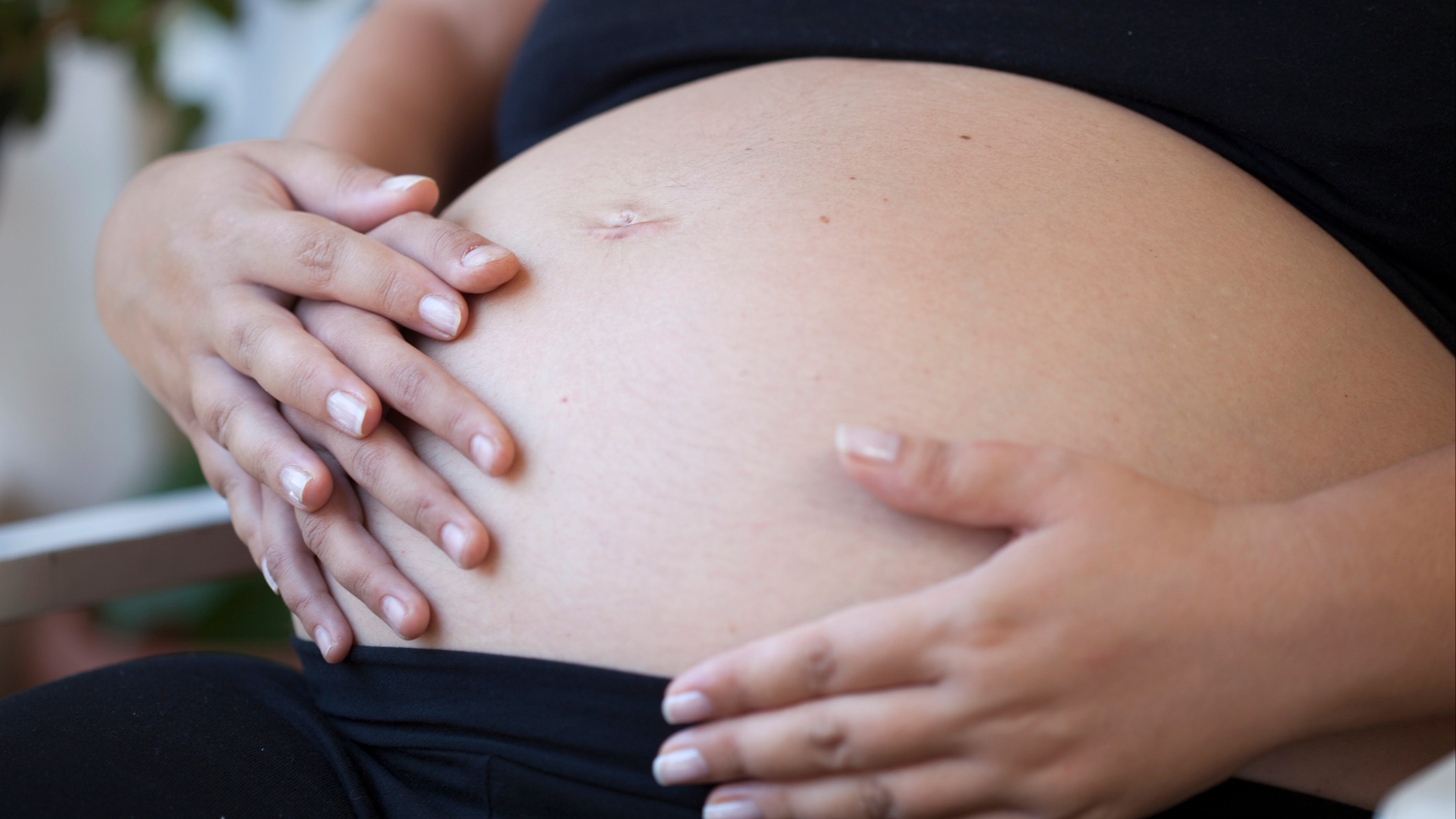
A 35-year-old woman is opening up about what it's like navigating pregnancy with a negative blood type. Courtney Yeager's blood lacks the protein known as Rh factor. In pregnancy, if her fetus had a positive blood type, it could create health problems for the baby. Courtney has been pregnant twice previously.
Her boys are now 3 and 5, and she received a shot called RhoGAM to treat any potential problems. The shot is used to prevent the pregnant person's immune system from reacting to the Rh proteins in the fetus's blood.
While her first two pregnancies went fairly smoothly, things took a turn with her third. At 23 weeks, she found out that her baby "was likely becoming anemic" due to the blood type mismatch. "I went right from the ultrasound appointment to the hospital."
Dr. Katherine Kohari, the associate director of the Yale New Haven Children’s Hospital’s Fetal Care Center and associate professor at Yale School of Medicine, told TODAY.com that it's normal for some fetal blood to cross the placenta into the mom's blood during pregnancy. If pregnant people who have Rh-negative blood are exposed to enough of baby's Rh-positive blood, their bodies may see it as foreign matter and launch an immune response to fight it.
More from LittleThings: Dedicated NICU Nurse Shares Why She Opened Up Her Home To A Teen Mom With Triplets
“It mounts an immune response the same way it might fight off an infection or the flu,” Katherine explained. This means that the body creates antibodies that target the Rh protein in the fetus's blood.
Called alloimmunization, it doesn't usually develop until after a first pregnancy because oftentimes the amount of fetal blood that leaks through the placenta is small, according to Katherine. "So it gets diluted out, and the immune system doesn't recognize it."
However, during childbirth, "there's a big mix" of blood, which can set off the mom's immune response and make the conditions riskier for future pregnancies. The biggest concern is that the pregnant person’s Rh antibodies are able to cross the placenta and begin destroying the red blood cells of the fetus. At that point, “the baby becomes very anemic,” Katherine said, which is a condition known as hemolytic disease of the fetus and newborn.
This scenario occurred with Courtney's third child. She ended up having to get six blood transfusions, which were delivered directly into the umbilical cord.
At 35 weeks, she was induced on May 13, 2022, which happens to also be the date of her wedding anniversary. "I was ultimately able to have the unmedicated birth, even being induced [with] a high-risk pregnancy," she shared. "That's something that was kind of a silver lining for me."
Her baby ended up in the NICU for six days dealing with conditions related to the anemia. "About three weeks after we got home, I started to notice that he was getting very pale," Courtney recalled. This meant that he was becoming anemic again. The baby received another three blood transfusions over the course of five months before his body began making enough of his own blood. Today, he is a healthy baby boy. "He is the biggest ball of joy for all of us and he's like everybody's baby," Courtney said. "You would never know that any of this happened."




